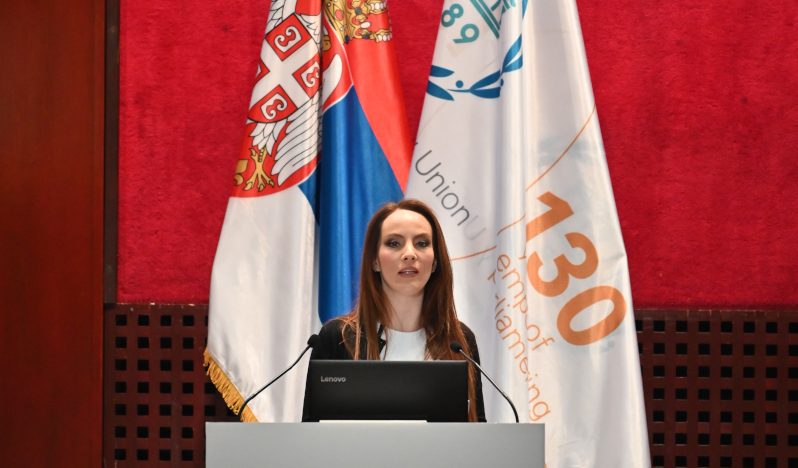I believe that parliaments need to adapt to new times

One of the main topics of the IPU’s session in Belgrade was strengthening international law and better regional cooperation. The Inter-Parliamentary Union President, Ms Gabriela Cuevas Barron is confident that parliamentarians will find ways to influence their governments for the benefit of both citizens and democracy. She explains that parliamentary delegations can demand from their governments to respect international law and encourage them to liaise and cooper-ate regionally.”If we, parliamentarians, can influence our governments, then every one of the 179 parliamentary delegations in the Inter-Parliamentary Union can demand that their governments respect international law and influence them to liaise and cooperate regionally,” the IPU President said in the beginning of her interview for Diplomacy&Commerce.
She added that it was the duty of parliamentarians around the world to work on promoting the international law, as well as “friendship, trust and love among nations”.”The people have chosen us to build bridges and solve problems. They have not chosen us to promote hatred. Today, again, we have the important task of finding and implementing sustainable solutions (…) International law is a map that shows us how to reach peaceful coexistence. That’s why International law is our main ally today, ” Ms Cuevas Barron added.
How did you decide to hold an IPU assembly session in Europe after 20 years? And how did you decide it to be in Serbia?
— We’ve been trying to organize an IPU Assembly in a European country for literally two decades. We realised that very few countries in Europe don’t didn’t have sanction policy against other countries. We contacted the Speaker of the Serbian Parliament, Ms Gojković. She, of course, asked us to give her some time to see if it was possible to organize the Assembly session in Serbia. In the end, she made it possible.
Last year, you said that the Serbian Parliament’s practice was noted as an example of good parliamentary practice. Do you still think that today, when the government and the opposition can speak to each other only with the help from European parliamentarians?
— I am familiar with those political developments. I think it is important to seize the opportunity for dialogue and that parliament is the best place to talk. This is the only way we can build democracy.
What is the cooperation between the IPU and Serbia like?
— It is very good. Believe it or not, I was talking with the Speaker of the Parliament Maja Gojković exactly about that, since I believe that in the last two years, we have seen improvements in the participation of the Serbian delegation. Serbia is also our host, so we have a very strong cooperation; even a partnership bond with the Serbian Parliament. This is mostly due to our good political will. Sometimes the cooperation is about that, i.e. finding the coincidences but also the will and the possibility to make it happen.
The Belgrade conference marks the jubilee – 70 years of the Geneva Convention and 30 years of the Convention on the Rights of the Child. The world is witnessing a serious violation of those rights. How can you protect them?
— We simply have to. These rights must be incorporated into our laws, but the most important thing is to monitor that our governments respect them and to make them accountable to the people and to the international system. Lately, we can hear people who blame globalization for national challenges or advocate unilateral solutions. We all see what is happening on our planet. There is no one-sided solution to the problem of respecting borders.
There were many topics on the conference agenda. Which ones would you single out?
— They are all important. The debate about dignified work was challenging. The global economy is slowing down, our products are changing and we want to know what will happen with salaries and jobs. Then there is climate change, displacement of people and achieving a universal health coverage in the world.
What are the main problems of parliaments in the world today and what are the solutions?
— Well, we have many problems, I believe that parliaments need to adapt to new times. Parliaments are institutions that were created centuries ago, and now, the 21 century requires that we bring institutions closer to people, provide faster solutions, with more inclusive processes. This is not a problem; more like a challenge. The problem is more with governments that become more authoritarian or some governments that are trying to dissolve parliaments. In those cases, the IPU has different approaches. I can’t use the word solution because we don’t have authority to find a solution to those issues. However, we have a possibility to talk with governments and countries and to look for the roadmaps that show us how to go back to democracy and parliaments that adhere to it fully. We are absolutely clear that if a parliament is not strong enough and does not respect democracy, it is not going to function properly.